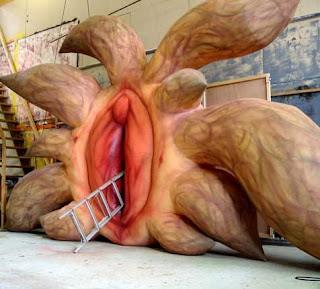
As a women in her mid thirties, I am now of an age where having children is starting to look unlikely. I have been married for ten years and have been completely settled and happy during that time but have just never had any urge to have a baby.
I sometimes think I must be wired up differently to other women because I have never been broody and have never once thought that I would like to have a baby.
I don't know why but do wander if it's because I saw too much at a young age!
I have always been fascinated with pregnant women (I do see the irony here) and took the first offer I had as a student nurse in 1993, to see a live birth. It was horrible. The women was in pure, unfettered agony and the husband was crying and shouting at the midwives. The midwife kept examining her to see how dilated she was, and every time she did, the women screamed to leave her the hell alone. When she dilated to 10cms, she needed an episiotomy (I had to sit down, the sound of crunching will never leave me) and then she couldn't push properly so they had to get this suction machine and pull the baby out. I thought it was all over but then the lady started haemorrhaging and the husband passed out, falling on top of me.
Fast forward fifteen years and I find myself as a final year medical student in a
birthing centre. I can see that things have changed. The medical room of the nineties has been replaced by a birthing room, which is a big lounge-like room with a bed, sofa and rocking chair in. There were no medical instruments to be seen (They were all tucked away in a friendly looking pine cabinet)
The midwives firmly told me that I was not here to "Deliver" a baby because in this environment, the women delivers her own baby. Midwives are scary people who don't like doctors very much (They hate medicalising birth) but are the kind of people that you definitely want around!
The next big difference I saw was that there are no longer repeated checks on how dilated the women is (They check every four hours, rather than hourly like I have seen) The midwives let the women's body tell her when it is time to start pushing, unlike the old days when the midwife would tell the women to start pushing because she was dilated to 10 cms. The emphasis is on non-intervention, i.e allowing things to happen naturally without medical interference.
Thinking about it, the birth in the 1990's and the one I saw last week were similar in that they were both first time young mums, having normal deliveries. The latest birth looked far less stressful because of the nicer environment but the one thing that doesn't seem to get any better is the bloody pain. These women are in AGONY!
We are living in the 2000's.... why are women still in so much pain when they give birth?






